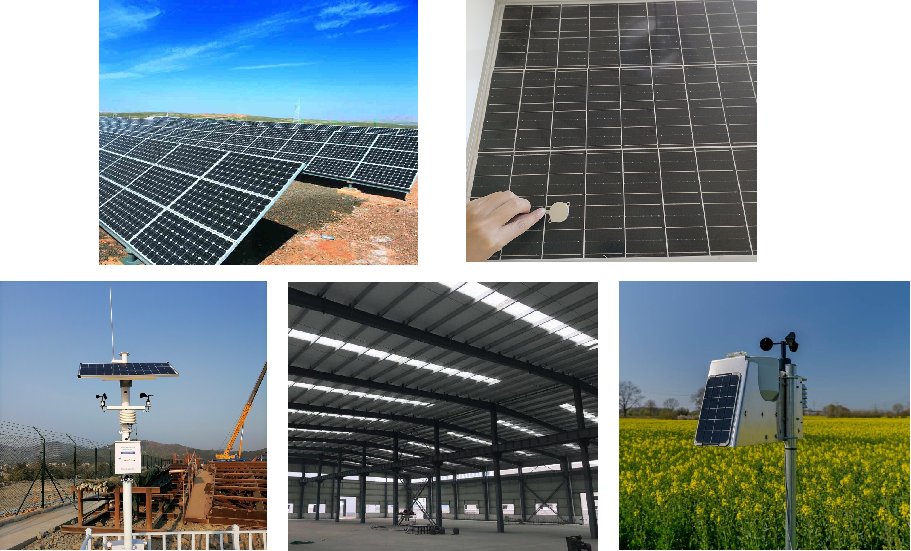Abrëll 2025— Well d'Welt sech ëmmer méi op erneierbar Energien orientéiert, ass d'Nofro fir effizient Solarenergieléisungen an d'Luucht gaangen. Un der Spëtzt vun dëser technologescher Evolutioun stinn d'Temperatursensore vu Solarpanneauen, déi an der leschter Zäit e groussen Undeel bei de Google-Sichresultater gewonnen hunn, wat op en erhéicht Interessi an eng wuessend Maartakzeptanz a verschiddene Länner a Secteuren hiweist.
Schlësselmäert fir Solarpanneautemperatursensoren
-
Vereenegt StaatenD'USA bleiwen e weltwäite Leader am Beräich vun der Solarenergie. Temperatursensore vu Solarpanneauen gi wäit verbreet a Solarinstallatioune vu Wunn-, Geschäfts- a Versuergungssystemer benotzt. Duerch d'Iwwerwaachung vun den Temperaturen a Paneelen hëllefen dës Sensoren, d'Energieproduktioun ze optimiséieren an d'Liewensdauer vu Solaranlagen ze garantéieren, besonnesch a Regioune mat extremen Temperaturschwankungen.
-
DäitschlandAls Pionéier am Beräich vun den erneierbaren Energien benotzt Däitschland extensiv Temperatursensore fir Solarpanneauen, fir d'Energieeffizienz ze verbesseren an d'Nohaltegkeet ze fërderen. Dës Sensore sinn souwuel a Solaranlagen a Wunnraim wéi och a grouss Kraaftwierker integréiert, wat eng präzis Iwwerwaachung erméiglecht, déi d'Gesamtleistung vum System verbessert.
-
ChinaMat der gréisster Solarenergiekapazitéit op der Welt setzt China séier Temperatursensore fir Solarpanneauen an senge grousse Photovoltaikanlagen an. Dës Sensore spille eng entscheedend Roll fir d'Leeschtung ze maximéieren an d'Betribszouverlässegkeet ze garantéieren, besonnesch am waarme Klima vun de südleche Provënzen.
-
IndienAls ee vun de séierst wuessende Mäert fir Solarenergie huet Indien ugefaang, Temperatursensore fir Solarpanneauen anzeféieren, fir d'Effizienz vu senge Solarparken ze verbesseren. D'Benotzung vun dëse Sensore erlaabt et de Betreiber, d'thermesch Leeschtung vu Solarpanneauen ze iwwerwaachen, wat datenorientéiert Entscheedungen erliichtert, déi d'Energieproduktioun a verschiddene Wiederkonditiounen verbesseren.
-
AustralienBekannt fir säi sonnegt Klima a säin Engagement fir erneierbar Energien, gesäit Australien och eng ëmmer méi grouss Notzung vu Solarpanneau-Temperatursensoren. Dës Sensore hëllefen de Baueren an Hausbesëtzer, d'Notzung vun der Solarenergie ze optimiséieren, besonnesch an der landwirtschaftlecher Uwendung, wou Solarenergie fir Bewässerungssystemer benotzt gëtt.
Uwendungen a verschiddene Secteuren
Solarpanneau-Temperatursensore si wichteg a ville Beräicher, dorënner:
-
SolarparkenA grousse Solaranlagen erméiglechen dës Sensoren et de Betreiber, d'thermesch Leeschtung vu Solarpanneauen ze iwwerwaachen, wouduerch d'Ënnerhalt bei Bedarf erliichtert gëtt an d'Energieertragung op Basis vun Temperaturschwankungen optimiséiert gëtt.
-
Solaranlagen fir WunnimmobilienHausbesëtzer benotzen Temperatursensoren fir sécherzestellen, datt hir Solarpanneauen effizient funktionéieren. Echtzäitdaten hëllefen, d'Energieverbrauchsmuster unzepassen an d'Stroumrechnungen ze spueren.
-
LandwirtschaftAn landwirtschaftleche Beräicher, wou Solarenergie fir d'Bewässerung an d'Stroumversuergung vun Ausrüstung benotzt gëtt, droen Temperatursensore zu enger besserer Energieverwaltung an der Ressourcenallokatioun bäi.
-
GebaiintegratiounA Smart Buildings sinn integréiert Solarpanneau-Temperatursensore Deel vu méi breede Energiemanagementsystemer, déi eng Echtzäit-Iwwerwaachung an Upassunge fir d'Energieeffizienz ze verbesseren erméiglechen.

Conclusioun
Déi wuessend Notzung vu Solarpanneau-Temperatursensoren a wichtege weltwäite Mäert ënnersträicht d'Wichtegkeet vun der Optimiséierung vu Solarenergiesystemer fir Effizienz a Liewensdauer. Länner wéi d'USA, Däitschland, China, Indien an Australien féieren d'Notzung vun dëser Technologie fir hir Strategien fir erneierbar Energien ze verbesseren.
Fir méi Informatiounen iwwer Temperatursensore vu Solarpanneauen a wéi se Äre Energieprojeten zugutt kommen, kontaktéiert w.e.g.Honde Technology Co., LTD.
- E-Mail:info@hondetech.com
- Telefon+86-15210548582
- Websäit vun der Firma:www.hondetechco.com
Honde Technology engagéiert sech fir innovativ Sensorléisungen ze bidden, déi d'Entwécklung vun erneierbaren Energietechnologien ënnerstëtzen an eng méi nohalteg Zukunft fir all garantéieren.
Zäitpunkt vun der Verëffentlechung: 08. Mee 2025


